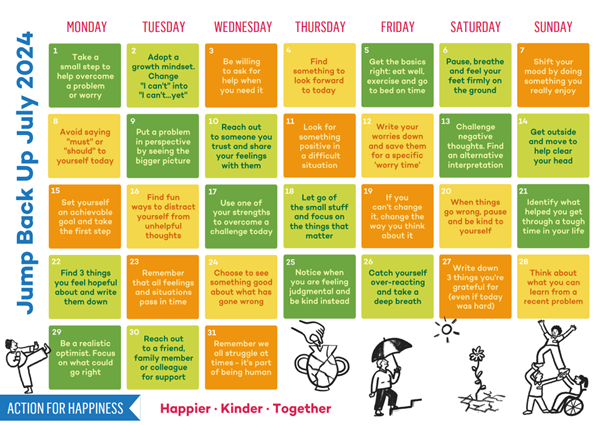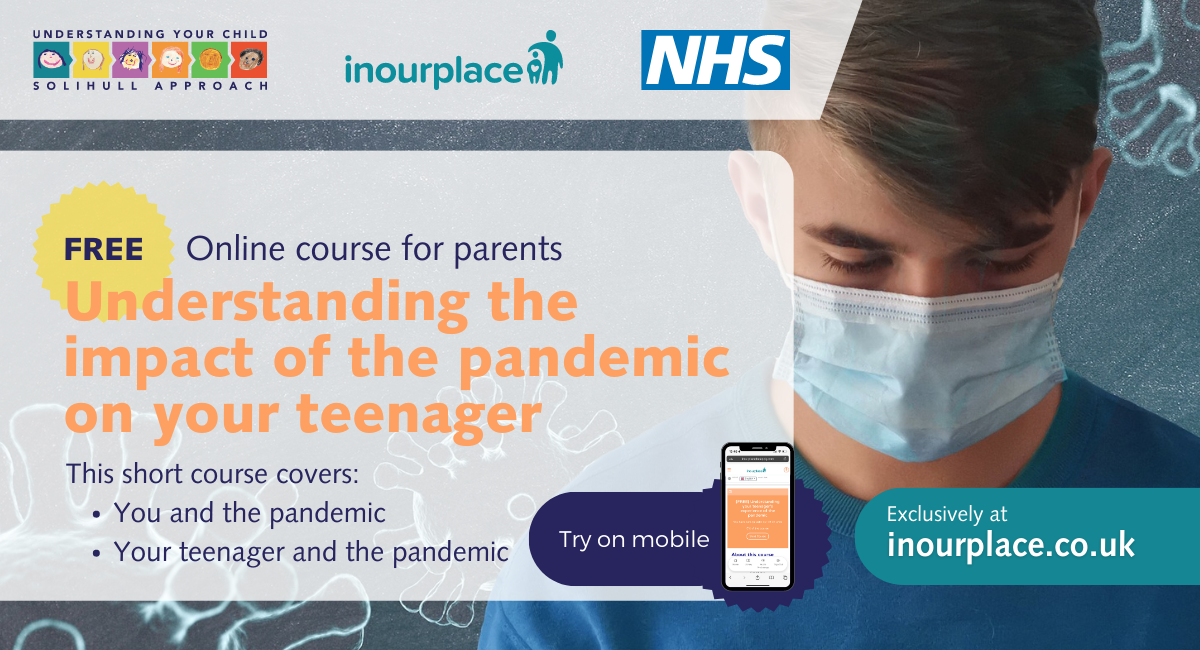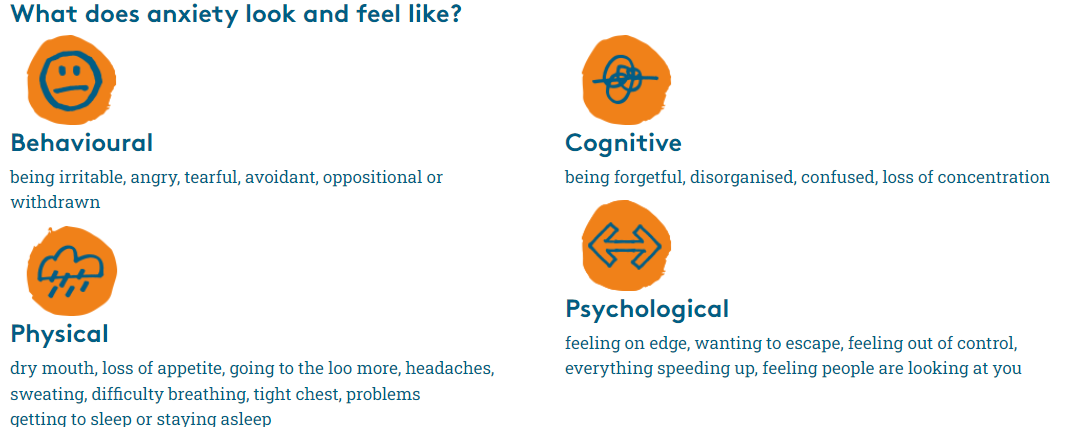Mental Health
How do I check if my child has a mental health illness?
A mental health illness is not something that can be picked up on tests. A check in with your local GP may help you with common issues such as anxiety and depression. For more advanced concerns you may need to book a meeting with an experienced psychiatrist or clinical psychologist.
Please click the following link for more information:
Get help with low mood, sadness or depression - NHS (www.nhs.uk)
Some useful conversation starters and practical advice for parents and carers to support their children regarding mental health can be found here.
Can someone at school help?
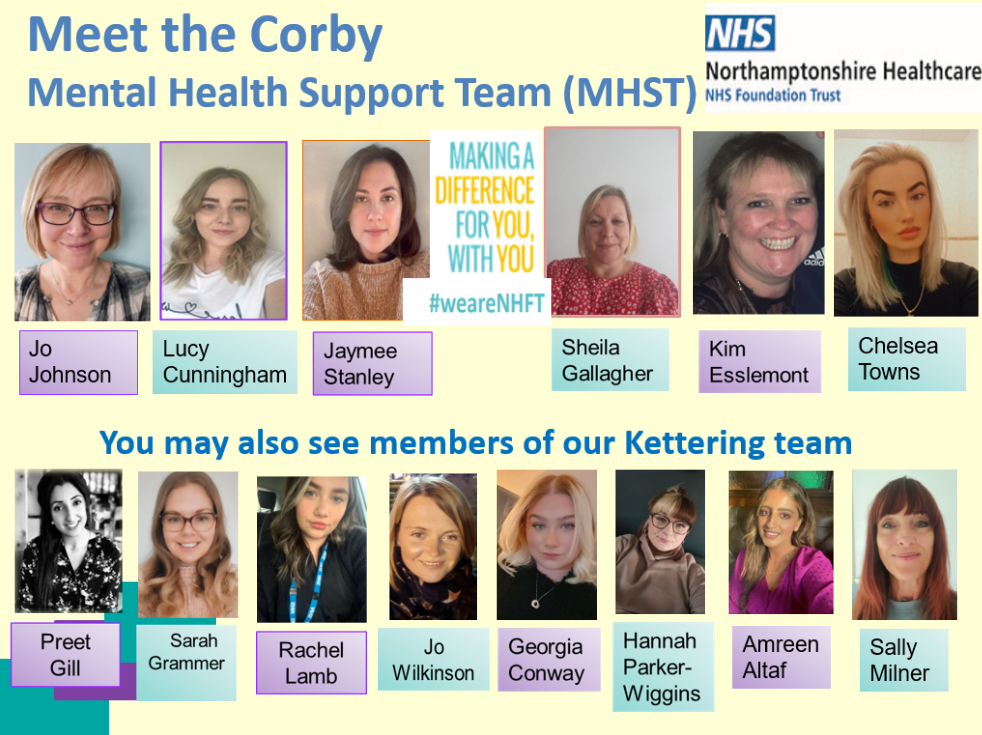
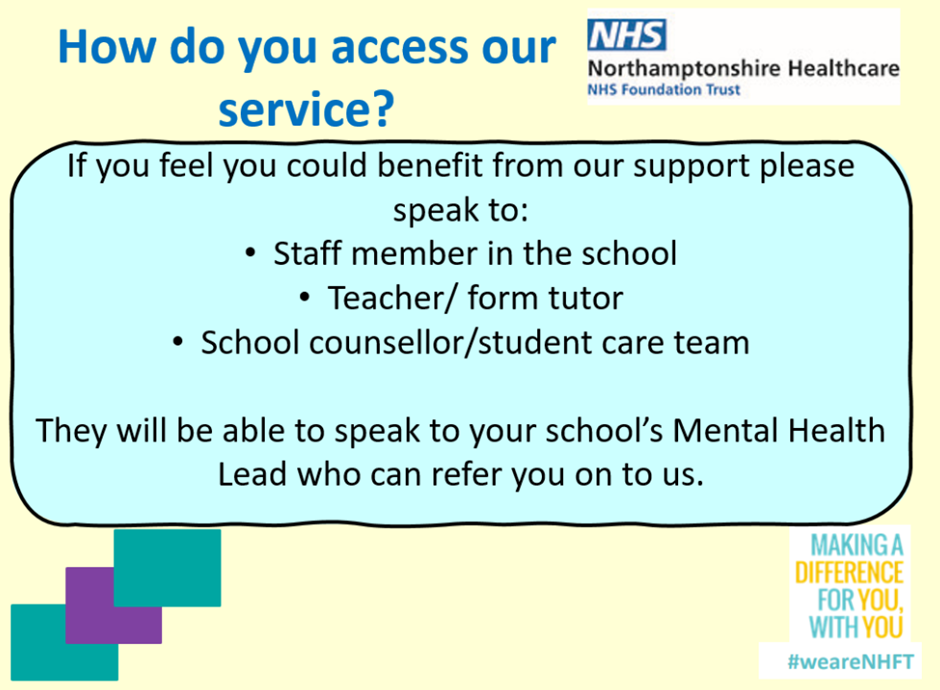
Local Wellbeing drop ins
Mondays & Fridays 4pm- 8pm - The Lowdown, Northampton NN1 1PP (01604 634385)
Tuesday’s 4pm-8pm – Youthworks, Corby NN17 1RU (01536 518339)
Tuesdays 4pm-8pm – Service Six, Rushden NN10 9YE (01933 277520)
Wednesday’s 4pm-8pm – CHAT, Thrapston NN14 4JU (01832 274422)
Wednesday’s 4pm-8pm – Time2Talk, Towcester NN12 6BT (01327 706706)
Thursday’s 4pm-8pm – Youthworks, Kettering NN16 9HX (01536 518339)
Saturday’s 10am-2pm – Service Six, Wellingborough NN8 3LT (01933 277250)
Saturday’s 12pm-4pm – Time2Talk, Daventry NN11 4XG (01327 706706)
Our Place are offering a free online course for parents on understanding how the COVID pandemic may have affected your teenager emotionally. They start by thinking about your experience of the pandemic, and then look at your teenager's experience and how it may have affected them. For more information, please click here. They also offer a free taster course for teenagers only on understanding their brain.
Click the link above and read on for more help and advice for dealing with mental health and young adults.
Below is a link to a downloadable support pack to help parents and carers with anxiety and mental health concerns with their children.
Parent/carer support guide to using the resources (charliewaller.org)
Helpful Links
Please find below some links that be of help;
https://www.youthworksnorthamptonshire.org.uk/
https://www.mind.org.uk/information-support/tips-for-everyday-living/
Action for Happiness is a movement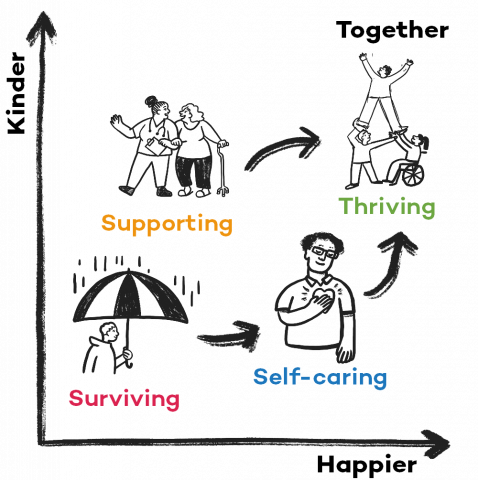 of people taking action to create a happier world, together, with a culture that prioritises happiness and kindness.
of people taking action to create a happier world, together, with a culture that prioritises happiness and kindness.
People's overall wellbeing is the 'ultimate good' and everything else in our society should contribute to this. We can’t choose our circumstances and there will always be good and bad times, but we can learn about what makes us happy and we can take actions with the aim to create more happiness for ourselves and the people around us.
Happiness is not about ignoring difficult feelings. Being present with all our emotions - and feeling sad when we need to - contributes to wellbeing in the longer term. A happier world comes from bringing happiness to others as well as ourselves. Happiness is a not a solo pursuit. When we connect together it's easier to make happiness a habit, feel a sense of belonging and have a positive impact.
Jump Back Up July
Let's find ways to bounce back!
